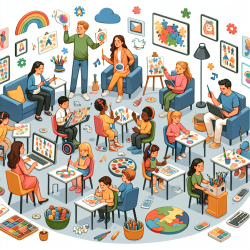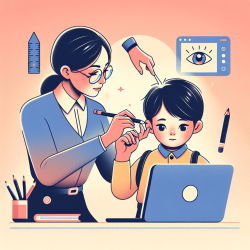Introduction
Individualized Education Programs (IEPs) are crucial for tailoring educational experiences to meet the unique needs of children with disabilities. Special education advocacy groups play a vital role in ensuring these plans are both comprehensive and effective. In recent years, the integration of online therapy services has emerged as a valuable tool in enhancing the IEP planning and meeting process.
The Role of Online Therapy in IEP Planning
Online therapy offers a flexible and accessible solution for schools facing therapist staffing shortages. By leveraging technology, schools can provide consistent and high-quality therapeutic services to children, regardless of geographical limitations. This accessibility ensures that all children receive the support they need, which is a cornerstone of effective IEP planning.
Enhancing IEP Meetings with Technology
IEP meetings are a collaborative effort that brings together educators, therapists, parents, and advocates. Online platforms facilitate seamless communication among all parties involved. This connectivity allows for real-time discussions, enabling a more dynamic and interactive meeting environment. Additionally, online tools can help in documenting and sharing progress, ensuring that all stakeholders are informed and engaged.
Benefits of Online Therapy for Children
- Consistency: Online therapy ensures that children receive regular sessions, which is essential for their progress and development.
- Customization: Therapists can tailor sessions to meet the specific needs of each child, ensuring that their IEP goals are addressed effectively.
- Engagement: Interactive and engaging online tools can capture the interest of children, making therapy sessions more effective and enjoyable.
Advocacy and Inspiration
Special education advocacy groups are instrumental in driving change and innovation in the field. By embracing online therapy solutions, advocates can inspire schools to adopt new methods that enhance the educational experiences of children with disabilities. This shift not only improves the quality of education but also empowers children to reach their full potential.
Conclusion
Incorporating online therapy into IEP planning and meetings offers numerous benefits that can transform the educational landscape for children with disabilities. By fostering collaboration and ensuring accessibility, online therapy empowers schools to provide the best possible support for their students. As we continue to explore new possibilities, advocacy groups remain at the forefront, championing the rights and needs of children everywhere.










